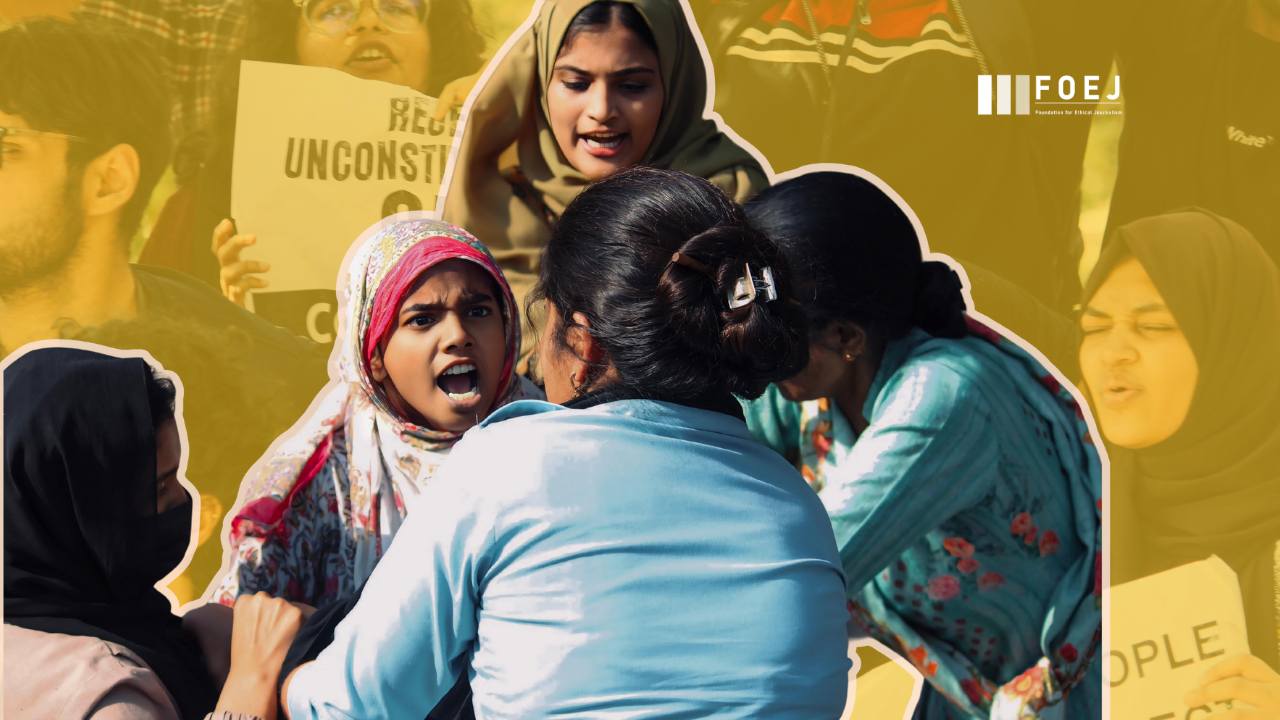The implementation of the CAA was announced on March 11, raising criticism from the opposition, students, activists, and many other critics.
The Cental government has been accused of being anti-Muslim; the government has refuted such claims, asserting that the law aims to assist minorities facing persecution in Muslim-majority nations. It clarified that the law seeks to grant citizenship rather than revoke it, and it dismissed the protests as politically motivated and grounded in misunderstandings.
Speaking at a gathering of social media activists in Secunderabad, Union Home Minister Amit Shah reiterated the government’s commitment to implementing the CAA. He criticized the Congress party for its consistent opposition to the law, highlighting the constitutional promise made at Independence to grant citizenship to refugees from Bangladesh, Afghanistan, and Pakistan who had suffered oppression.
Shah accused the Congress of obstructing this process due to appeasement politics and vote-bank considerations. He praised Prime Minister Narendra Modi for fulfilling this promise by granting citizenship to Hindus, Buddhists, Jains, Sikhs, and others who faced persecution.
Meanwhile, opposition parties and Chief Ministers from West Bengal, Kerala, Tamil Nadu, and Delhi vowed to resist the CAA, labeling it a divisive measure intended to exploit religious sentiments for electoral advantage ahead of the Lok Sabha elections.
“Desperate Attempt”
The Congress questioned the timing of the CAA notification, alleging that it was strategically timed to polarize voters, especially in West Bengal and Assam. They claimed it was an attempt to divert attention from the Supreme Court’s criticism of the electoral bond scandal by dominating the headlines with contentious issues.
Jairam Ramesh, the Congress General Secretary, questioned the timing of the implementation, noting the lengthy delay since the bill’s passage in December 2019. He criticized the Modi government for seeking multiple extensions from the Supreme Court, resulting in a delay of four years and three months before the rules were notified.
Mallikarjun Kharge, the Congress President, accused the government of indulging in divisive politics shortly before the upcoming Lok Sabha elections, characterizing it as a “desperate attempt.”
Sharad Pawar, the president of the Nationalist Congress Party (NCP), strongly criticized the CAA, labeling it an attack on parliamentary democracy. Pawar denounced the decision, particularly noting its proximity to the announcement of Lok Sabha polls by the Election Commission of India (ECI), as a direct assault on democratic principles.
“Strategy to strip people of their rights”
On March 12, Waris Pathan, the spokesperson for the All India Majlis-e-Ittehad-ul-Muslimeen (AIMIM), accused the BJP government of employing polarization tactics in preparation for the 2024 Lok Sabha elections.
Asaduddin Owaisi, the leader of AIMIM, voiced concerns regarding the timing of the implementation of the CAA, suggesting it draws inspiration from Nathuram Godse’s ideology and seeks to sow divisions within the nation. He stressed the importance of providing asylum based on persecution rather than granting citizenship based on religion or nationality.
Mamata Banerjee, the Chief Minister of West Bengal, described it as a “strategy to strip people of their rights,” as reported by PTI. She expressed uncertainty about the legal validity of the Citizenship Amendment Act (CAA) rules issued by the central government, citing a lack of clarity.
There are growing concerns about potential polarization, notably in West Bengal and Assam, where sizable Muslim populations reside. The Communist Party of India (CPI) in Kerala has called for widespread protests against the CAA, condemning it as a deliberate attempt to sow discord among the people and undermine constitutional values.
On Wednesday, Karnataka’s Home Minister, G. Parameshwara, announced that a decision regarding the implementation or rejection of the Citizenship Amendment Act (CAA) will be made during the state cabinet meeting.
Parameshwara noted, “Individuals from Bangladesh and other nations have been identified and deported from Karnataka.”
When questioned about whether the Congress party is concerned about potential repercussions from implementing the CAA, Parameshwara responded by stating that the BJP is making such claims, as they typically do, to criticize the Congress. He emphasized the Congress’s commitment to upholding democracy in the country and expressed skepticism towards the BJP’s timing of implementing the CAA, especially during an election period, suggesting political motives.
Legal Action
The Indian Union Muslim League (IUML) has lodged a petition with the Supreme Court of India to halt the implementation of the CAA, deeming it “prima facie unconstitutional.” In its submission, IUML highlighted that the CAA Rules of 2024 abolish the layered scrutiny process, entrusting a district-level committee with the authority to authenticate documents and administer the oath of allegiance to the CAA.
Congress MP Shashi Tharoor has also voiced support for the opposition’s move to seek judicial intervention in the enforcement of the CAA. Describing the law as ‘unconstitutional,’ Tharoor asserted that it would be repealed should the India alliance come into power.
Tharoor contended that the CAA is morally and constitutionally flawed, emphasizing that during the partition, one nation was formed on religious lines to create Pakistan. However, he cited the stance of Mahatma Gandhi, Jawaharlal Nehru, Maulana Azad, and Dr. Ambedkar, who advocated against religion being the basis of nationhood. Tharoor reiterated that the struggle for independence was inclusive, and the constitution and the nation it established were meant to serve everyone.









